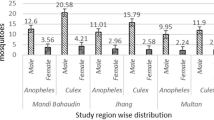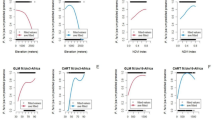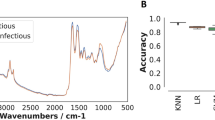Abstract
WITH reference to the recent article on the Ronald Ross Jubilee1, it may be of interest to note that, in a paper read at a meeting of the Royal Scottish Geographical Society in April 1892, Dr. H. Martyn Clark, of Amritsar, remarked "that, as some insects carry the pollen of one plant to the flower of another, so mosquitos [sic] transplant the malarial germ to a suitable nidus by directly inoculating their victims with it"2. He further stated that "it will probably some day be ascertained that the mosquito fulfils a part in their [that is, the germs of malaria] transmission". As Ross met Manson in 1894, and Manson brought forward the mosquito theory in that year, Clark‘s adumbration seems to be worthy of recall.
This is a preview of subscription content, access via your institution
Access options
Subscribe to this journal
Receive 51 print issues and online access
$199.00 per year
only $3.90 per issue
Buy this article
- Purchase on SpringerLink
- Instant access to full article PDF
Prices may be subject to local taxes which are calculated during checkout
Similar content being viewed by others
References
Nature, 162, 50 (1948).
Clark, H. M., "Remarks on Malaria and Acclimatisation", Scot. Geog. Mag., 9, 294 (1893).
Author information
Authors and Affiliations
Rights and permissions
About this article
Cite this article
KENNETH, J. Mosquitoes and Malaria. Nature 162, 227 (1948). https://doi.org/10.1038/162227c0
Issue date:
DOI: https://doi.org/10.1038/162227c0



